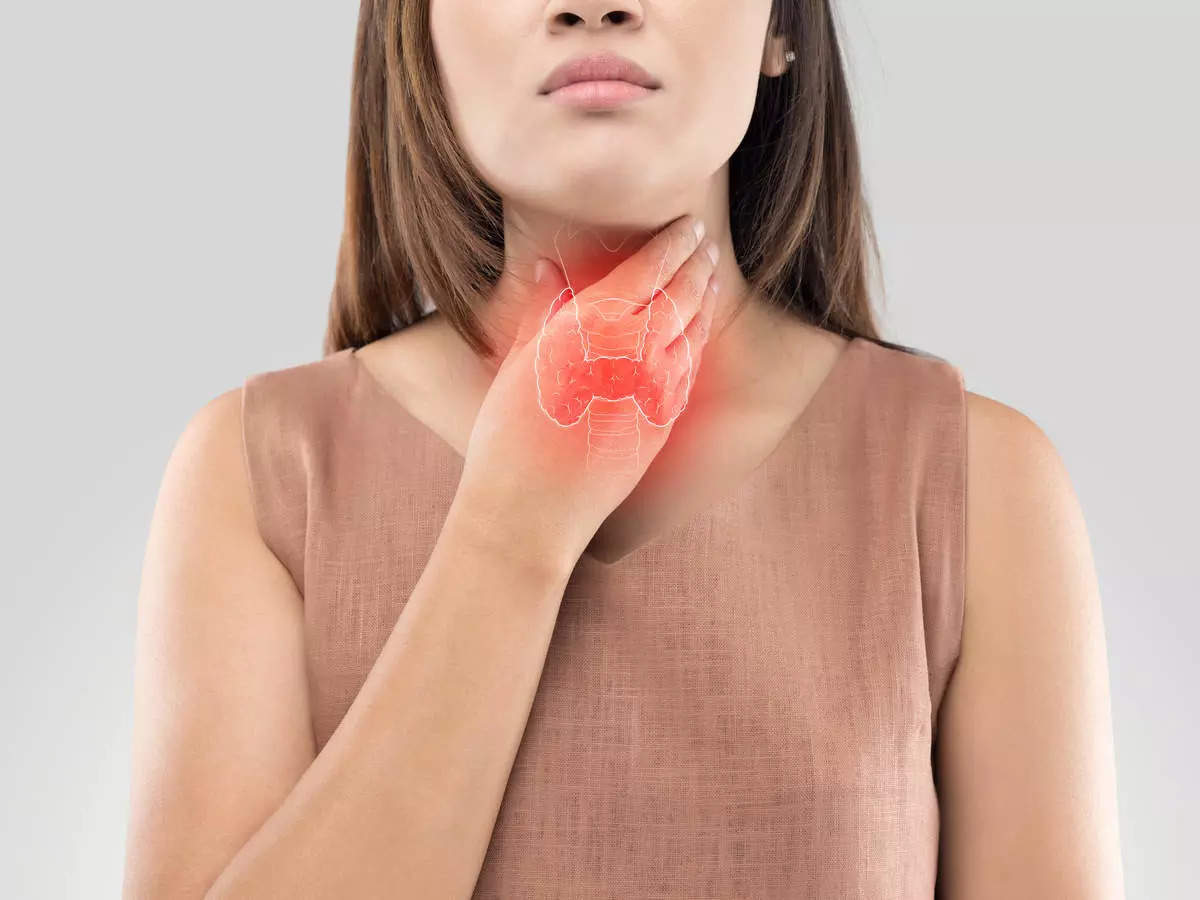 Mumbai: Majority of the male and female population suffer from thyroid disorders and there is an increasing prevalence of thyroid disorders in India. Early diagnosis and treatment can be key to managing thyroid health and preventing further complications, doctors warn.
Mumbai: Majority of the male and female population suffer from thyroid disorders and there is an increasing prevalence of thyroid disorders in India. Early diagnosis and treatment can be key to managing thyroid health and preventing further complications, doctors warn.
Doctors advise that lack of awareness may be the reason for the increase in thyroid cases. Thyroid problems like hypothyroidism and hyperthyroidism more often cause hormonal imbalances, menstruation, weight, skin, infertility, and heart problems in women. Both hypothyroidism and hyperthyroidism can lead to irregular menstrual cycles, interference with ovulation (release of eggs), and increased risk of miscarriage and premature delivery.
Dr Surabhi Siddhartha, Consultant Obstetrician and Gynecologist, Motherhood Hospital, said: “Hypothyroidism is the most common thyroid dysfunction in women. There is a growing trend of thyroid disease these days. One in 10 women seem to suffer from hypothyroidism. Due to pandemic and covid confinement and sedentary confinement, hypothyroidism is also increasing in society and many cases have been observed in the last year. One or two miscarriages have been observed due to high thyroid level. It is most often observed between the ages of 30 and 35. But now, due to the changing lifestyle, it is also seen in the 25 to 30 age group. It is imperative to address thyroid disorders as they can cause problems with menstruation.
The thyroid produces thyroid hormone which controls many activities in the body, including how fast you burn calories and how fast your heart beats. Thyroid disease causes it to produce too much or too little hormone. Hypothyroidism occurs when the thyroid does not produce enough thyroid hormones. It is also known as an underactive thyroid. Hyperthyroidism, or overactive thyroid, causes the thyroid to produce more thyroid hormones than your body needs.
“The thyroid controls the menstrual cycle. Too much or too little thyroid hormone can make periods very light, heavy, or irregular, or periods stop for a few months, which is called amenorrhea. These thyroid problems can lead to early menopause and even complications in the baby during pregnancy. Low levels of thyroid hormones can cause you to pack on those extra pounds, even if the number of calories consumed remains constant. Thyroid problems can cause rapid and irregular heartbeats, palpitations, and even heart failure. Thyroid disorders can make a person anxious, nervous, agitated, irritated and even depressed. Other problems such as dry and pale skin, itching, hair loss, slow healing wounds and thick, dry and brittle nails are commonly seen in thyroid patients,” Dr. Surabhi added.
Informing that thyroid disorders are becoming common in the Indian population, especially hypothyroidism, Dr. Sneha Sathe, Fertility Consultant, Nova IVF Fertility, said, “Thyroid hormones play an important role in regulating body metabolism, energy levels, body weight, core temperature, menstrual cycles, functioning of lungs and heart and other vital organs. It is found that it affects women more often than men. In the early stages of hypothyroidism, there are often no noticeable symptoms. But if left untreated, hypothyroidism can lead to a number of health problems such as weight gain, menstrual disorders, infertility, depression, kidney disease, and heart problems. The most common cause of hyperthyroidism is Graves’ disease. In women, hyperthyroidism can lead to menstrual irregularities, impaired fertility, and an increased risk of early miscarriage. In men, hyperthyroidism can cause a marked reduction in sperm count.”
“An overactive or underactive thyroid can interfere with regular cyclic ovulation (release of eggs from the ovary) and thus lead to difficulty in conceiving. It can also cause problems during pregnancy itself. A Diagnosis and “Early treatment is key to managing thyroid health. A simple blood test to measure your TSH levels can give an idea of any thyroid dysfunction. Doctors can then advise further tests and also initiate treatment if needed.” , added Dr. Sathe.
.
